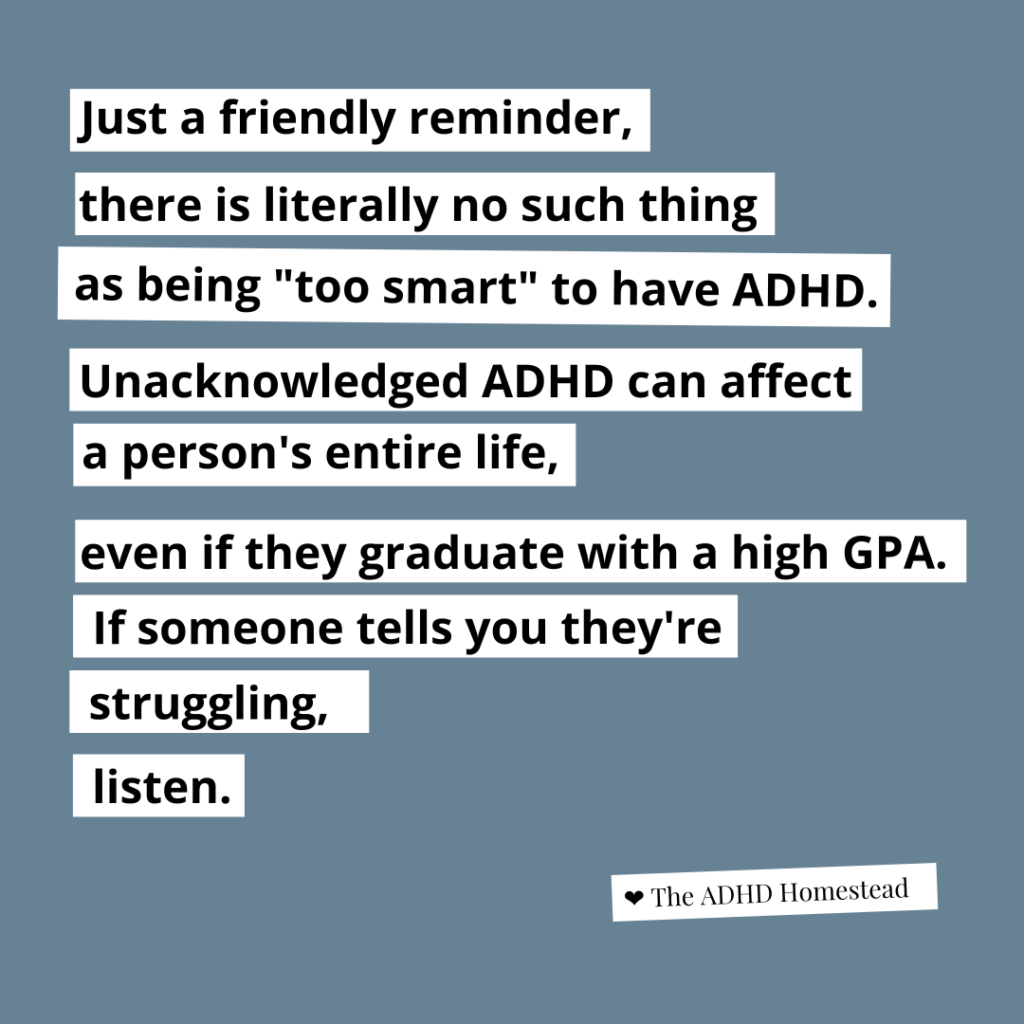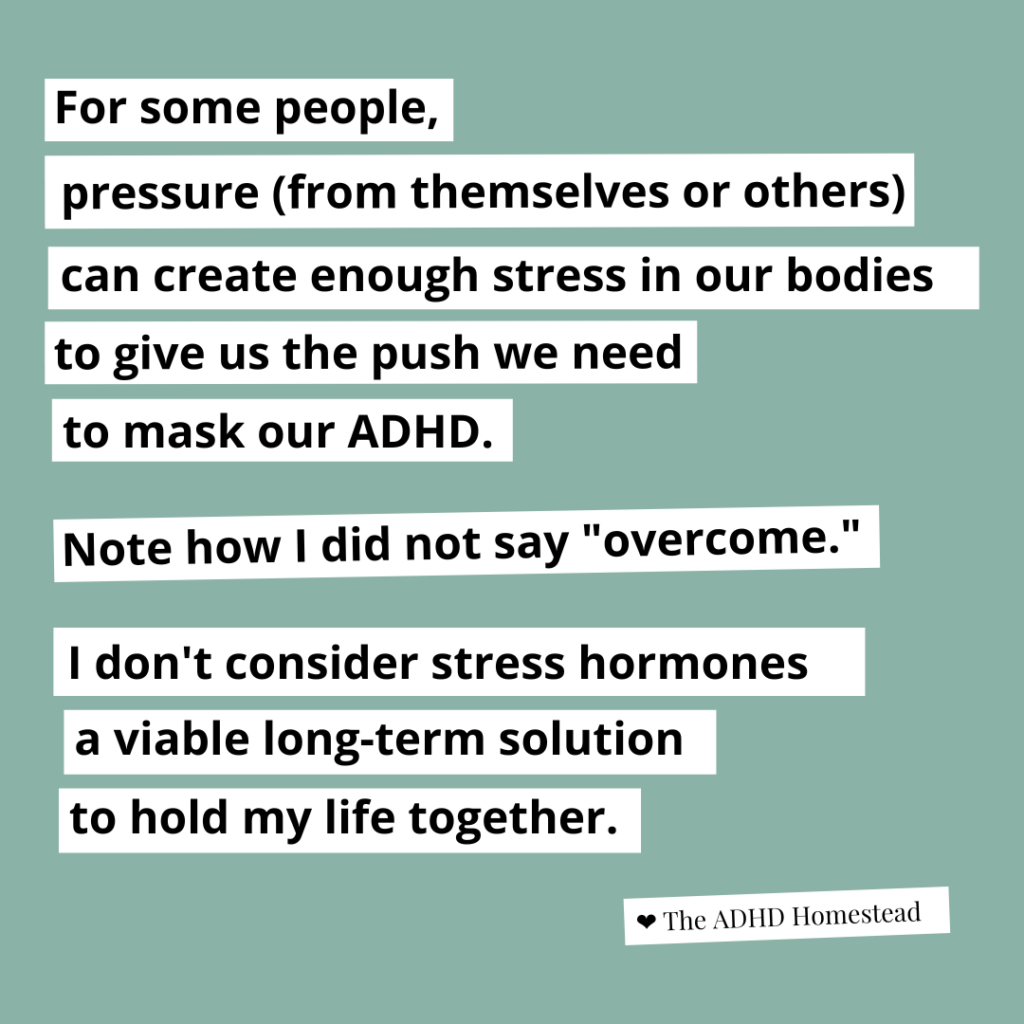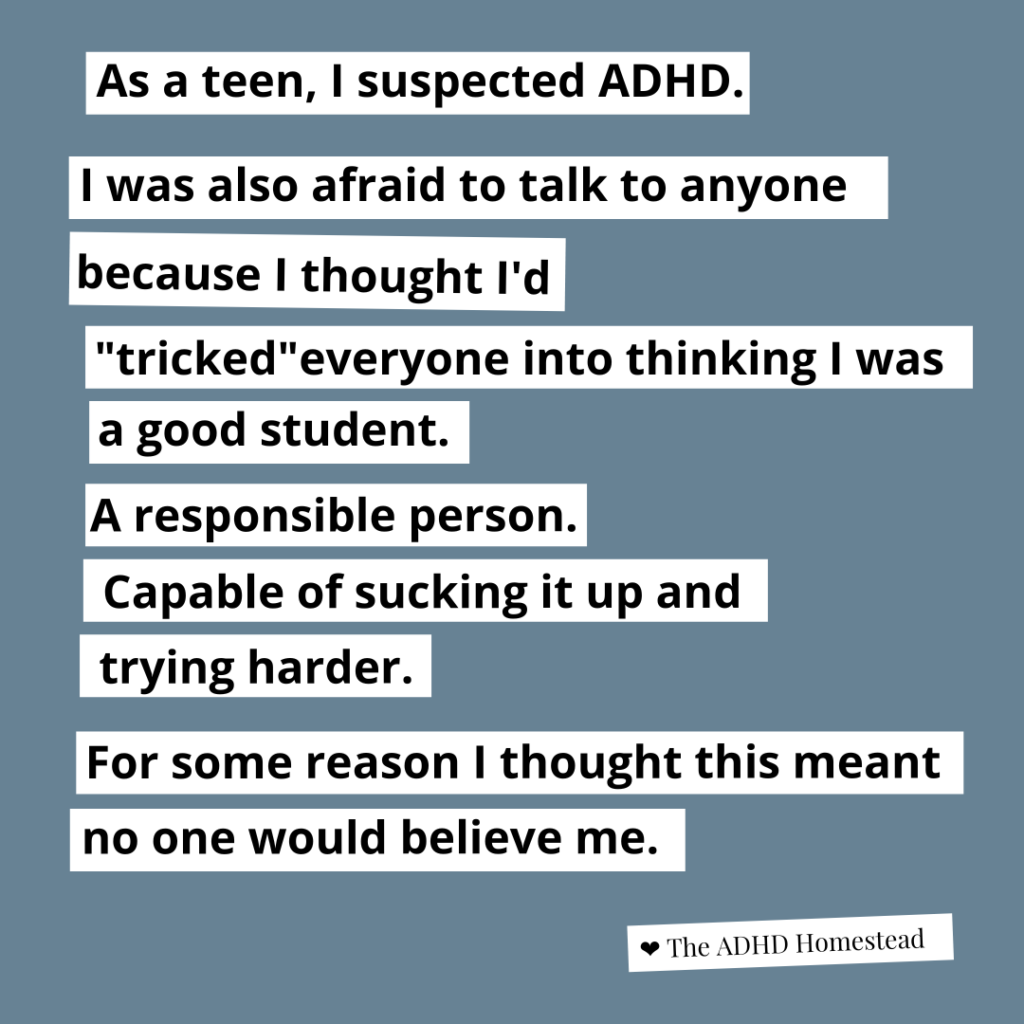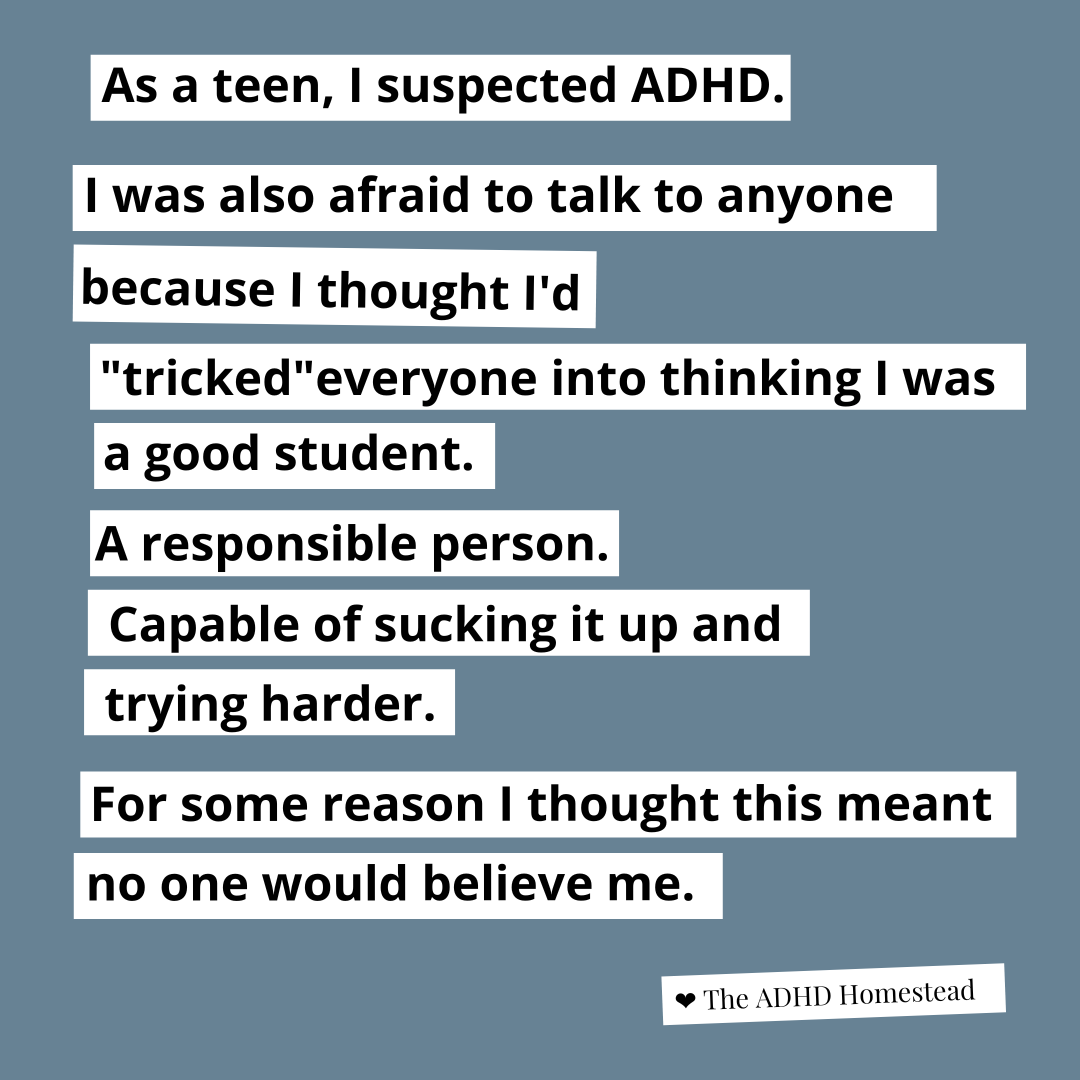Editor’s note: a previous version of this post appeared on April 2, 2015.
At various points in my adult life, people have told me I can’t have ADHD. I’m too smart. Too organized.
I’ll set aside the insidious myth about ADHD and intelligence for another day. However, the upshot is, someone can appear “smart” and “organized” but still be struggling. A kid who looks like a great student on paper can be underperforming. I’ve often managed to seem okay or even above average, but this masks the full story.
In fact, sometimes being “smart” allows us to mask more of our struggles, and for longer. This isn’t healthy and it doesn’t mean we’re doing fine.
I wasn’t born an organized person. I don’t spend as much time trying to stay organized as I do because it comes naturally, or because I enjoy it, or because I’m a Type A personality.
This is the secret some people find hard to believe about me: I’m only doing the bare minimum. I need this many concrete systems to maintain a base level of sanity, cleanliness, and financial security in my life.
It’s not that I don’t want to be casual about my organizational structures. It’s that I can’t afford to be.

“But you did well in school.”
To be honest, I could never afford to be casual. Another comment I’ve gotten about my ADHD diagnosis is, “but you did so well in school.”
Yes, I did well in school. There’s a reason for that. First, I was smart. But I avoided most of the more challenging coursework the other “smart kids” took in middle and high school. Signed up for more study hall periods. Did more homework during class. In other words, my natural aptitude allowed me to coast and underperform while maintaining an impressive-enough GPA.
I also had responsibility and pressure to organize my life independently. My parents both worked full time. By the time I was eleven or twelve, they were often gone when I woke up for school. I lived in a rural town. Walking and public transit were not viable options to get to school. If I missed the bus, my parents were getting a call from either me or the school attendance office — so I never did.
Likewise, they didn’t have time to sit with me for hours offering homework help. Back then we didn’t have online parent portals where they could check up on my grades and homework assignments whenever they wanted. They had their jobs. School was mine. I was expected to figure out a way to manage it.

Aptitude masks struggle.
I consider my upbringing a huge asset to me as a kid with ADHD. The structure I got from school and my parents, the pressure to take responsibility and learn to be independent by the time I left home at 18, gave me so many skills.
And yet I felt at war with myself. Here’s an excerpt from my journal, written when I was seventeen years old:
…When I have to pay attention in school, sometimes I just can’t. I’ll try with all I’ve got, but it’s like a fog, a force field goes up between me and them and I can’t cut through it.
Most of the time, no matter what, I can’t sit still. My leg twitches, my fingers, tap, I fidget and shift positions, or my eyes just keep darting around.
I find it difficult to do my homework at night because I’ll start staring at something, I’ll pick up objects around me and look at them, my thoughts will wander, I won’t be able to focus or concentrate.
And then there’s my memory. I can never remember books and movies, I constantly forget to perform simple tasks, so much so that it interferes with my daily functioning in life. This is why I write on my hands. I do things in fragments because I get distracted and bounce from task to task. I must perform my morning routine in the same order every day lest I leave something out. I am very absent-minded.
I have trouble not talking when there is someone who I can talk to nearby.
See, I talked to my guidance counselor about it, and I still don’t know what to do. In order to be diagnosed with anything, a test would go out to me, my parents, and my teachers, none of whom I want to get involved. I’ve tricked my teachers into thinking I’m a good student…
I have to constantly stay a step ahead of this, I have to beat it and sidestep it and wrestle it to the ground, all to keep my head above the water. Battling with a condition of your own mind is like nothing else — it is a unique struggle, one that knows you and hits you where you are weak, one that wears you down over time and makes you feel sick inside.
I wish it could be easy, but it sucks.
I remember feeling exhausted. Unable to coexist with myself. But I was afraid to tell anyone because I’d done such a good job “tricking” everyone into thinking I was someone else. I dreaded making myself vulnerable enough to confess what my life really felt like, only to have them tell me it was all in my head.
“Smart” and “organized” can be more than meets the eye.

My “unique struggle” doesn’t feel that way anymore. I’ve heard almost the same story from too many ADHD girls and women, along with some men who had a more inattentive or anxious presentation. These are the ADHD cases that slip by until adulthood, when we must create our own structure, goals, and schedules. Suddenly, we have no rules from Mom and Dad. No school. No easy A. We must make our own day, and if we haven’t learned to do that, everything begins to fall apart.
That’s what happened to me. Then I learned how to dig my way out and live a healthier life. One that felt better aligned with the kind of person I was. It was lonely and difficult, and I later wrote a book about my journey in hopes I could make it a little less lonely and difficult for someone else.
But this is what you don’t see when you assume someone is “too smart” to have ADHD because they “did well in school.” Or when you envy someone for being “so organized” because they have to write everything down and use six color-coded calendars on their phone. Maybe there are recreational organizers out there, I don’t know. But for me and many others like me, there’s a lot lurking beneath the surface of the smart, well-organized image.
Hey there! Are you enjoying The ADHD Homestead?
Here's the thing: I don't like ads. I don't want to sell your attention to an advertising service run by the world's biggest data mining company. I also value my integrity and my readers' trust above all, which means I accept very few sponsorships/partnerships.
So I'm asking for your support directly. For the cost of one cup of coffee, you can help keep this site unbiased and ad-free.
Below you will find two buttons. The first lets you join our crew of Patreon pals and pledge monthly support for my work. Patrons also have access to my Audioblogs podcast. The second takes you to a simple donation page to pledge one-time or recurring support for The ADHD Homestead, no frills, no strings. Do whichever feels best for you!

